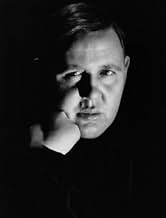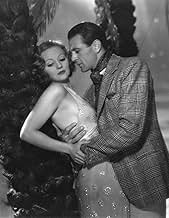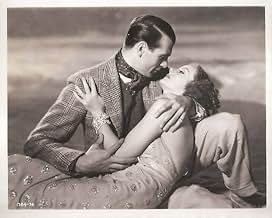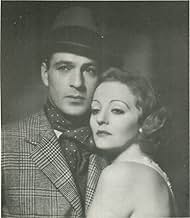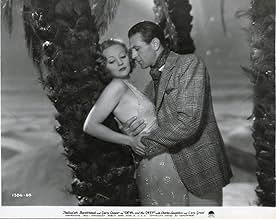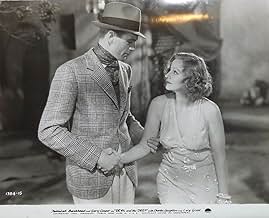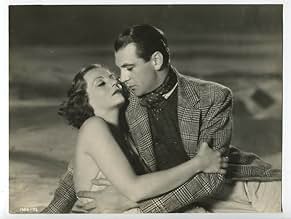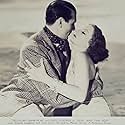IMDb-BEWERTUNG
6,3/10
951
IHRE BEWERTUNG
Füge eine Handlung in deiner Sprache hinzuA man sets out for revenge after learning of his wife's affair.A man sets out for revenge after learning of his wife's affair.A man sets out for revenge after learning of his wife's affair.
- Regie
- Drehbuch
- Hauptbesetzung
- Auszeichnungen
- 1 wins total
James Dugan
- Condover
- (as Jimmie Dugan)
Peter Brocco
- Wireless Operator
- (Nicht genannt)
Jack Gardner
- Submarine Crewman
- (Nicht genannt)
John George
- Man in Crowd
- (Nicht genannt)
Henry Guttman
- Submarine Crewman
- (Nicht genannt)
Fred Kohler Jr.
- Submarine Crewman
- (Nicht genannt)
Anderson Lawler
- Sailor
- (Nicht genannt)
Lucien Littlefield
- Shopkeeper
- (Nicht genannt)
Empfohlene Bewertungen
Devil and the Deep (1932)
*** (out of 4)
Diana Sturm (Tallulah Bankhead) is married to submarine Cmdr. Charles Sturm (Charles Laughton) and everyone sees her as a bad person. The truth of the matter is that Charles is extremely abusive to her and will stop at nothing to destroy any man's life he feels she is attracted to. One night while running away from the abuse, Diana meets Lt. Sempter (Gary Cooper) and the two have a relationship, which soon leads to disaster.
DEVIL AND THE DEEP isn't a very well-known movie and I must admit that I'm quite shocked about that. I had never really heard of the film until recently and it's rather amazing because you've got not only Bankhead, Laughton and Cooper but you've also got a young Cary Grant in a nice early role. Four legendary stars from Hollywood's Golden Age and you mention the title to most film buffs and they won't be familiar with it.
Whatever the reason people don't know the film, it's really too bad because it's actually pretty good. The greatest thing about the film is the ending, which I won't spoil but it takes place on the submarine and there's no question that it's quite tense and rather claustrophobic. Director Marion Gering really does a nice job with this entire sequence and while some of the special effects shots aren't the greatest, the overall impact of the scene is very good. The film does get off to a rather slow start but it quickly picks up.
The performances are certainly the main reason to watch the picture with Bankhead delivering a fine one. She's very good in the role of the abusive wife and I really enjoyed her performance when she had to show the fear she feels for her husband. I thought the actress was very believable as an abused woman. Cooper was also very stoic in his "hero" type of role. I thought the two of them shared some very good chemistry and that helped their relationship. Grant appears early on in the picture and he's very good as well. As for Laughton, he gets a very special screen credit and he certainly deserves it as he is great as the crazed man who will stop at nothing to hurt his wife and any man who likes her. By watching this film it's easy to see why he would eventually be cast in MUTINY ON THE BOUNTY.
At just seventy-five minutes the film has a very good pace and there's no question that it's one worth watching.
*** (out of 4)
Diana Sturm (Tallulah Bankhead) is married to submarine Cmdr. Charles Sturm (Charles Laughton) and everyone sees her as a bad person. The truth of the matter is that Charles is extremely abusive to her and will stop at nothing to destroy any man's life he feels she is attracted to. One night while running away from the abuse, Diana meets Lt. Sempter (Gary Cooper) and the two have a relationship, which soon leads to disaster.
DEVIL AND THE DEEP isn't a very well-known movie and I must admit that I'm quite shocked about that. I had never really heard of the film until recently and it's rather amazing because you've got not only Bankhead, Laughton and Cooper but you've also got a young Cary Grant in a nice early role. Four legendary stars from Hollywood's Golden Age and you mention the title to most film buffs and they won't be familiar with it.
Whatever the reason people don't know the film, it's really too bad because it's actually pretty good. The greatest thing about the film is the ending, which I won't spoil but it takes place on the submarine and there's no question that it's quite tense and rather claustrophobic. Director Marion Gering really does a nice job with this entire sequence and while some of the special effects shots aren't the greatest, the overall impact of the scene is very good. The film does get off to a rather slow start but it quickly picks up.
The performances are certainly the main reason to watch the picture with Bankhead delivering a fine one. She's very good in the role of the abusive wife and I really enjoyed her performance when she had to show the fear she feels for her husband. I thought the actress was very believable as an abused woman. Cooper was also very stoic in his "hero" type of role. I thought the two of them shared some very good chemistry and that helped their relationship. Grant appears early on in the picture and he's very good as well. As for Laughton, he gets a very special screen credit and he certainly deserves it as he is great as the crazed man who will stop at nothing to hurt his wife and any man who likes her. By watching this film it's easy to see why he would eventually be cast in MUTINY ON THE BOUNTY.
At just seventy-five minutes the film has a very good pace and there's no question that it's one worth watching.
'Devil and the Deep's' biggest draw was the cast. The most interesting being Charles Laughton in his first American film. Have also liked Tallulah Bankhead in other films, one of her best being 'Lifeboat', and Gary Cooper gave a lot of great performances later on when his acting style had fully developed ('High Noon', 'The Westerner' etc). So did Cary Grant. Did like the premise, which did have potential to be quite tense and intriguing and also the creepy-sounding title.
It is a shame that 'Devil and the Deep' isn't better known. For all its faults, and it has them, it is a nice, interesting film that sees most of the cast on great form (the cast are not just the main interest point of 'Devil and the Deep' but also the primary reason as to why the film just about works) and does a lot right. Not everything works and the film could have done more with its subject, though it doesn't waste it, but the flaws are outweighed by the good things.
A lot works. The best asset is the cast. Bankhead is intensely riveting in her role without going too over the top. Laughton is genuinely menacing and looked as though he was enjoying himself, the chemistry between him and Bankhead has the right amount of intensity needed. Grant is in a very early role and acquits himself very well and is charming and suave, something that he specialised in throughout his career and refined not long after this. It is nicely directed by Marion Gering (an unfamiliar director to me), especially towards the end and in the interactions between Bankhead and Laughton.
Production values are generally not too elaborate while never looking cheap, the atmospheric and suitably claustrophobic photography and eerie lighting coming off best. The music is suitably haunting without being intrusive while not having much that is distinguished. The script is patchy and undernourished at times but generally is intriguing and to me it didn't get too over-heated. The story is tautly paced relatively and carried by its atmosphere, the tense climax stands out.
Sadly, Cooper really isn't at his best. Actually thought that he was very weak and wooden and he certainly went on to much better things. To be fair though, he had a very shallow and dull character and awfully clunky dialogue (this was where the script was patchy) to work with.
It was a little bland at the start and the film changes gear very abruptly and the second half generally felt incomplete, hence some choppiness.
Bottom line, pretty good and deserving to be better known. 7/10
It is a shame that 'Devil and the Deep' isn't better known. For all its faults, and it has them, it is a nice, interesting film that sees most of the cast on great form (the cast are not just the main interest point of 'Devil and the Deep' but also the primary reason as to why the film just about works) and does a lot right. Not everything works and the film could have done more with its subject, though it doesn't waste it, but the flaws are outweighed by the good things.
A lot works. The best asset is the cast. Bankhead is intensely riveting in her role without going too over the top. Laughton is genuinely menacing and looked as though he was enjoying himself, the chemistry between him and Bankhead has the right amount of intensity needed. Grant is in a very early role and acquits himself very well and is charming and suave, something that he specialised in throughout his career and refined not long after this. It is nicely directed by Marion Gering (an unfamiliar director to me), especially towards the end and in the interactions between Bankhead and Laughton.
Production values are generally not too elaborate while never looking cheap, the atmospheric and suitably claustrophobic photography and eerie lighting coming off best. The music is suitably haunting without being intrusive while not having much that is distinguished. The script is patchy and undernourished at times but generally is intriguing and to me it didn't get too over-heated. The story is tautly paced relatively and carried by its atmosphere, the tense climax stands out.
Sadly, Cooper really isn't at his best. Actually thought that he was very weak and wooden and he certainly went on to much better things. To be fair though, he had a very shallow and dull character and awfully clunky dialogue (this was where the script was patchy) to work with.
It was a little bland at the start and the film changes gear very abruptly and the second half generally felt incomplete, hence some choppiness.
Bottom line, pretty good and deserving to be better known. 7/10
Devil and the Deep contains a fascinating performance from Charles Laughton as a submarine commander going nuts with the conviction that his sultry wife (Tallulah Bankhead) is cheating on him first with Cary Grant and then Gary Cooper.
The physical production features a claustrophobic studio recreation of a North African town (reminiscent of Von Sternberg's "Morocco" but without the dazzling shadow play), a romantic scene in a starlit desert oasis (said to have been filmed in an actual desert but looking exactly like a painted backdrop) and finally the laughable spectacle of toy boats bobbing around in a tank of water that we're supposed to believe is the Mediterranean.
Bankhead, like other female stars of that historical moment, is made up and coiffed to look like a Garbo clone. The style suits her without overwhelming her innate, distinctive qualities of voice and manner. Laughton's performance prefigures his later Captain Bligh in Mutiny on the Bounty and Quasimodo in The Hunchback of Notre Dame. I prefer his work here to his Bligh, which was sometimes too messily overwrought. This is also the second 1932 film (the other being "Payment Deferred") in which he plays dementia with mad laughter. Cooper is wooden and awkward (and handsome) as usual and Grant does well in a smallish supporting role.
The physical production features a claustrophobic studio recreation of a North African town (reminiscent of Von Sternberg's "Morocco" but without the dazzling shadow play), a romantic scene in a starlit desert oasis (said to have been filmed in an actual desert but looking exactly like a painted backdrop) and finally the laughable spectacle of toy boats bobbing around in a tank of water that we're supposed to believe is the Mediterranean.
Bankhead, like other female stars of that historical moment, is made up and coiffed to look like a Garbo clone. The style suits her without overwhelming her innate, distinctive qualities of voice and manner. Laughton's performance prefigures his later Captain Bligh in Mutiny on the Bounty and Quasimodo in The Hunchback of Notre Dame. I prefer his work here to his Bligh, which was sometimes too messily overwrought. This is also the second 1932 film (the other being "Payment Deferred") in which he plays dementia with mad laughter. Cooper is wooden and awkward (and handsome) as usual and Grant does well in a smallish supporting role.
Cary Grant's charm and looks he displayed in his first movie, 1932's "This Is The Night," earned him a role in his next feature film, his second, as a potential love-interest to the wife of a naval ship commander in August 1932's "Devil and the Deep." Grant plays Lt. Jaeckel under the command of Charles Strum (Charles Laughton), a deeply flawed and extremely jealous husband to Diana Sturm (Talluhlah Bankhead). Based on Maurice Larrouy's novel, 'Sirenes et Tritons," Jaeckel sparks Strum's insane jealousy, which is unfounded by his wife's disinterest in the lieutenant. Jaeckel is quickly shipped out early in the film and is replaced by another lieutenant, Sempter (Gary Cooper), who it turns out gets kissy-wissy with Diana. Actress Bankhead said she accepted the role because she really wanted to get physically close to Cooper.
"Devil and the Deep" was Hollywood's first detailed look at the insides of a submarine. Once the U-Boat's commander Strum has his wife and her officer boyfriend Sempter underway in the underwater sub, he sets forth his plans to kill the lovers, taking along his crew for a suicidal maneuver. Laughton is clearly the star in the movie: the actor's menacing behavior fits the deranged Strum perfectly to a tee. The English-born and raised Laughton began acting on the stage in 1926 while dabbling in film during the late 1920s before securing his first major role in "Devil and the Deep." Tallulah Bankhead, primarily a stage actress, found acting in movies to be a complete bore. Her first two years in Hollywood, 1931 and 1932, were marked with her yearning to return to the live stage. "Devil and the Deep" was her second-to-last picture before reemerging on the screen twelve years later in Alfred Hitchcock's 1944 "Lifeboat."
"Devil and the Deep" marked the return to Hollywood for Gary Cooper. Burnt out and drained from an aggressive schedule of acting in ten movies within a two-year span, Cooper suffered from anemia and jaundice from his poor dietary habits. He decided to make a break from Los Angeles, feeling depressed and lonely. Reconnecting with an acquaintance, American heiress Dorothy Taylor, now a countess living in Rome, Italy, Cooper rehabilitated himself with her good food and great advice on nutrition. Developing a continental appreciation for the arts and customs of Europe, the actor's rough Western edges were smoothed out by the countess' patient tutorship. She took him on a ten-week big game safari hunting trip in Kenya, where he bagged a variety of trophy animals. His love of the wilderness kick in during the trip. In his role as the submarine's second-in-command, Cooper appears more comfortable and restrained in his role as the leader of the mutiny when it becomes obvious its commander is attempting to kill everyone on board.
"Devil and The Deep" is the only movie, besides a brief appearance in 1933's "Alice in Wonderland," Cooper and Grant ever shared credits in the same movie. This was a bit ironic since Grant had Cooper in mind when he selected his stage name Cary after the actor from Montana.
"Devil and the Deep" was Hollywood's first detailed look at the insides of a submarine. Once the U-Boat's commander Strum has his wife and her officer boyfriend Sempter underway in the underwater sub, he sets forth his plans to kill the lovers, taking along his crew for a suicidal maneuver. Laughton is clearly the star in the movie: the actor's menacing behavior fits the deranged Strum perfectly to a tee. The English-born and raised Laughton began acting on the stage in 1926 while dabbling in film during the late 1920s before securing his first major role in "Devil and the Deep." Tallulah Bankhead, primarily a stage actress, found acting in movies to be a complete bore. Her first two years in Hollywood, 1931 and 1932, were marked with her yearning to return to the live stage. "Devil and the Deep" was her second-to-last picture before reemerging on the screen twelve years later in Alfred Hitchcock's 1944 "Lifeboat."
"Devil and the Deep" marked the return to Hollywood for Gary Cooper. Burnt out and drained from an aggressive schedule of acting in ten movies within a two-year span, Cooper suffered from anemia and jaundice from his poor dietary habits. He decided to make a break from Los Angeles, feeling depressed and lonely. Reconnecting with an acquaintance, American heiress Dorothy Taylor, now a countess living in Rome, Italy, Cooper rehabilitated himself with her good food and great advice on nutrition. Developing a continental appreciation for the arts and customs of Europe, the actor's rough Western edges were smoothed out by the countess' patient tutorship. She took him on a ten-week big game safari hunting trip in Kenya, where he bagged a variety of trophy animals. His love of the wilderness kick in during the trip. In his role as the submarine's second-in-command, Cooper appears more comfortable and restrained in his role as the leader of the mutiny when it becomes obvious its commander is attempting to kill everyone on board.
"Devil and The Deep" is the only movie, besides a brief appearance in 1933's "Alice in Wonderland," Cooper and Grant ever shared credits in the same movie. This was a bit ironic since Grant had Cooper in mind when he selected his stage name Cary after the actor from Montana.
... and in fact only the last thirty minutes or so has much suspense or tension.
Commander Charles Sturm (Charles Laughton) of the U. S. Navy is well liked by his men and their wives. However, his own wife Diana (Tallulah Bankhead) is not well liked. She appears snooty and glum. In fact she is just a very sad person because her husband is insanely jealous without cause and even violent sometimes. In fact he has been to a doctor and is just plain insane and delusional, and this has killed what love she had for him. He even has a fellow officer, Lt. Jaekel (Cary Grant) transferred for inefficiency just because he is so sure Jaekel and his wife are involved. His wife even has an impromptu conversation with Jaekel with her husband listening nearby to prove it's not true but he remains unconvinced.
So Diana takes a walk through the North African town in which they are stationed, meets a stranger, and gets romantically involved with that stranger. What she doesn't know is that the man is her husband's new second in command to replace the one he transferred, Lt. Sempter (Gary Cooper). So Sturm's old jealousies begin to rise up again, except for once he is right. And a submarine is a terrible place in which to play out a love triangle. Complications ensue.
This is noteworthy for the once-in-a-lifetime cast. Laughton gets an "introducing" credit as being that "noted British character actor". Laughton goes big and florid with his performance, Cooper gives his normal "aw shucks" performance, and Bankhead plays it quiet and sullen. Bankhead is best when she's the one handing out the withering one-liners, so the film may have worked better with a more conventional and vulnerable leading lady.
Commander Charles Sturm (Charles Laughton) of the U. S. Navy is well liked by his men and their wives. However, his own wife Diana (Tallulah Bankhead) is not well liked. She appears snooty and glum. In fact she is just a very sad person because her husband is insanely jealous without cause and even violent sometimes. In fact he has been to a doctor and is just plain insane and delusional, and this has killed what love she had for him. He even has a fellow officer, Lt. Jaekel (Cary Grant) transferred for inefficiency just because he is so sure Jaekel and his wife are involved. His wife even has an impromptu conversation with Jaekel with her husband listening nearby to prove it's not true but he remains unconvinced.
So Diana takes a walk through the North African town in which they are stationed, meets a stranger, and gets romantically involved with that stranger. What she doesn't know is that the man is her husband's new second in command to replace the one he transferred, Lt. Sempter (Gary Cooper). So Sturm's old jealousies begin to rise up again, except for once he is right. And a submarine is a terrible place in which to play out a love triangle. Complications ensue.
This is noteworthy for the once-in-a-lifetime cast. Laughton gets an "introducing" credit as being that "noted British character actor". Laughton goes big and florid with his performance, Cooper gives his normal "aw shucks" performance, and Bankhead plays it quiet and sullen. Bankhead is best when she's the one handing out the withering one-liners, so the film may have worked better with a more conventional and vulnerable leading lady.
Wusstest du schon
- WissenswertesAt no point is the navy that Charles Laughton, Cary Grant and Gary Cooper belong to named. That the officers are English and others American would not make sense in the British or U.S. navy, but no flags or emblems are seen, and their uniforms belong to no known country on earth.
- Zitate
Cmdr. Charles Sturm: [to Lt Sempter] It must be a happy thing to look like you do. I suppose women love you. I've never had that. Must be a happy thing.
- Crazy CreditsAnd introducing CHARLES LAUGHTON The eminent English character actor in the role of THE COMMANDER
- VerbindungenFeatured in MsMojo: Top 10 Biggest Old Hollywood Scandals (2023)
Top-Auswahl
Melde dich zum Bewerten an und greife auf die Watchlist für personalisierte Empfehlungen zu.
- How long is Devil and the Deep?Powered by Alexa
Details
- Laufzeit1 Stunde 18 Minuten
- Farbe
- Seitenverhältnis
- 1.37 : 1
Zu dieser Seite beitragen
Bearbeitung vorschlagen oder fehlenden Inhalt hinzufügen

